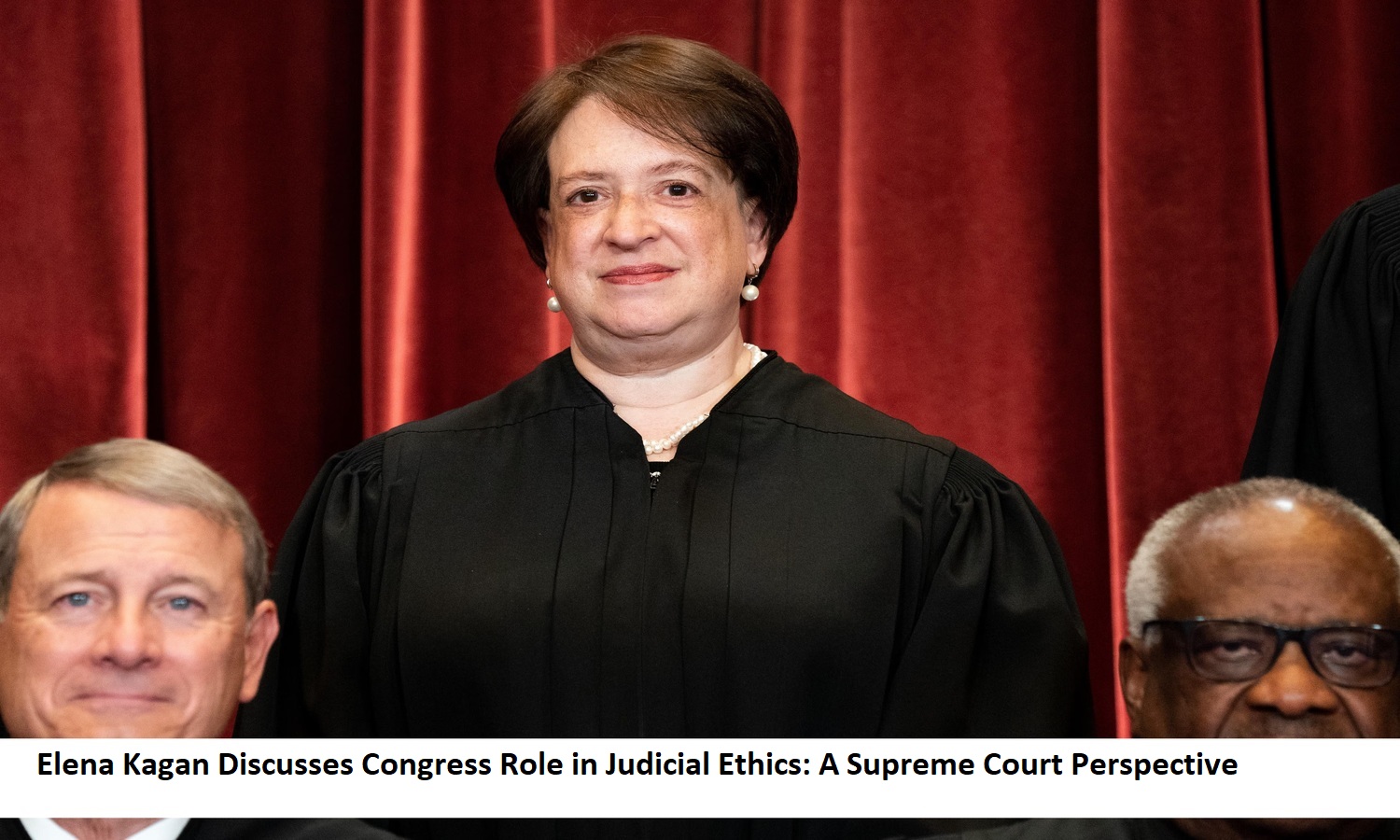Elena Kagan Discusses Congress Role: Elena Kagan, a Supreme Court justice, has discussed Congress’s ability to compel the judiciary to follow an ethical code. Kagan opened the Ninth Circuit Judicial Conference in Portland, Oregon, by explaining the complex system of checks and balances. She described the delicate balance between judicial independence and outside supervision.
Justice Kagan didn’t answer, but she stressed the need of the Supreme Court having checks and balances like the rest of the government. She repeated that the court cannot be independent. She added, “It just can’t be that the court is the only institution that has no checks and balances from anyone else.” It’s impossible.
In her speech, Justice Kagan said, “I mean, we are not imperial.” She reiterated that the court is crucial to checks and balances. She briefly noted the legal branch’s importance in democratic administration.
However, Kagan stated that this law cannot cover everything. Congress can monitor the courts, but if it goes too far, it could start doing what the Constitution says the courts should do. Congress may exceed this limit, preventing the court from following the Constitution. Kagan stated, “Congress can’t do anything it wants.” She warned that the legislature’s interference with the court’s constitutional duties could cause serious constitutional issues.
Justice Kagan briefly mentioned the unpredictability of the future. “In the back of my mind, I’m thinking, ‘Who knows?'” she wondered. Her comment suggested that Congress’s power over the court may need to be discussed again. She spoke because she considered the possibilities.
Justice Samuel Alito’s approach inspired Kagan’s. Alito has stated that Congress should remain out of the Supreme Court’s ethics laws. Kagan said she hadn’t read Alito’s interview but had done her own research when asked about his perspective.


Kagan said the justices have been discussing a high court-specific rule of conduct in private. Kagan supplied this material to highlight how the court works inside. Her statement illuminated courtroom exchanges without providing details.
Kagan also discussed public trust in the legal system. She believed the court’s actions increase faith in the institution. She believes that if the court upholds judicial values and doesn’t appear to be biased, the public will trust it more. Her legal views focused on moderation, self-control, and keeping the court out of other organizations’ business.
Justice Elena Kagan’s statement emphasized how difficult Congress-Supreme Court cooperation is. The court, prepared to discuss the subject constructively, shared her views. She also supported a balanced approach that maintained the court’s constitutional integrity and implemented checks and balances. Her views also demonstrated thevalue of balance.
READ MORE: Trump Indictment: The Role of Professional Line-Sitters in Media Coverage
Also Read: Galapagos Islands: A Magical Journey of Biodiversity and Discovery
Our Reader’s Queries
What are Elena Kagan political beliefs?
Kagan’s colleague at The Daily Princetonian, Steven Bernstein, couldn’t remember a time when she shared her political beliefs. He characterized her views as falling within the liberal, democratic, and progressive tradition, noting that she keeps everything in lowercase.
What are some fun facts about Elena Kagan?
The initial woman to hold the title of dean at Harvard Law School, she was a contender for the role of president at Harvard University in 2007 but ultimately lost out to Drew Gilpin Faust. Kagan departed from her dean position at Harvard Law to reenter government in the Obama administration, where she took on the position of solicitor general.
Can Congress impose ethics rules on Supreme Court?
Some argue that Congress holds substantial constitutional power to oversee Supreme Court ethics. If Congress wanted to penalize a Justice accused of breaking the Justices’ Code of Conduct or another ethical rule, the Constitution would set boundaries for their actions.
When was Elena Kagan confirmed to the Supreme Court?
On August 5, 2010, Solicitor General Elena Kagan secured her confirmation to the Supreme Court, backed by Democrats and a few Republicans. The final vote tallied at 63-37. Throughout the debate, Republicans raised concerns about Kagan’s limited judicial background and her dedication to judicial restraint.

